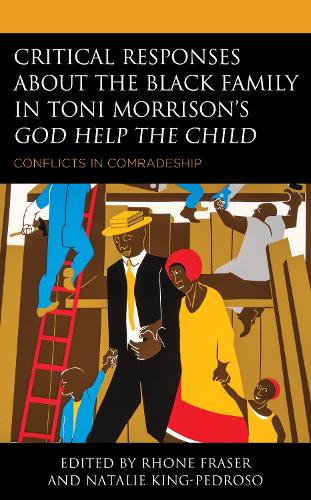
Critical Responses About the Black Family in Toni Morrison's God Help the Child: Conflicts in Comradeship
(Paperback)
Available Formats
Publishing Details
Critical Responses About the Black Family in Toni Morrison's God Help the Child: Conflicts in Comradeship
By (Author) Rhone Fraser
Edited by Natalie King-Pedroso
Contributions by Na'Imah Ford
Contributions by Yolanda Franklin
Contributions by Rhone Fraser
Contributions by Natalie King-Pedroso
Contributions by Xenia Liashuk
Contributions by Sukanya Senapati
Contributions by Khalilah Watson
Contributions by Jericho Williams
Bloomsbury Publishing PLC
Lexington Books
21st October 2021
United States
Classifications
Professional and Scholarly
Non Fiction
Gender studies: women and girls
Literary studies: from c 2000
813.54
Physical Properties
Paperback
232
Width 153mm, Height 230mm, Spine 15mm
376g
Description
Critical Responses About the Black Family in Toni Morrison's God Help the Child explores the integral role of what Kobi Kambon has called the conscious African family in developing commercial success stories such as those of Morrisons protagonist, Bride. Initially, Brides accomplishments are an extension of a superficial cult of celebrity which inhabits and undermines the development of meaningful interpersonal relationships until a significant literal and metaphorical journey helps her redefine success by facilitating the building of community and family.
Reviews
Coming at the issues from the inside, the collaboration between Rhone Fraser, Natalie King-Pedroso & Company, Conflicts in Comradeship, provides a timely and useful contribution to studies on the African American family along with analyses of Toni Morrisons God Help the Child.
-- Susan Neal Mayberry, Alfred UniversityIn 1937, Margaret Walker wrote , For my people standing staring trying to fashion a better way/from confusion from hypocrisy and misunderstanding,/ trying to fashion a world that will hold all the people,/ all the faces all the adams and eves and their countless/ generations Toni Morrisons 11th novel, God Help the Child rings with Walkers sentiments, and Natalie King-Pedroso and Rhone Frasiers Critical Responses about the Black Family in Toni Morrisons God Help the Child: Conflicts in Comradeship does as well. This important collection of essays tackles the novel as a culminating moment in Morrisons thought, a grief-filled extension of The Bluest Eye, and as a vessel sailing the African Ocean of mysteries. The text, like Morrisons own, reaches out to the shackled and tangled among ourselves with the aim of letting a beauty full of healing come forth. Conflicts in Comradeship offers a unique and brave approach to criticism, collaboration, and reading Morrisons under appreciated final work of fiction.
-- Monifa A. Love Asante, Bowie State UniversityAuthor Bio
Rhone Fraser is independent scholar and member of the Toni Morrison Society.
Natalie King-Pedroso is associate professor in the department of English and modern languages at Florida A&M University.
